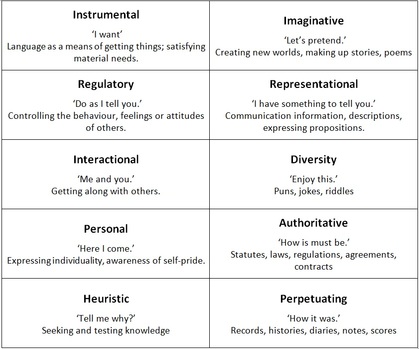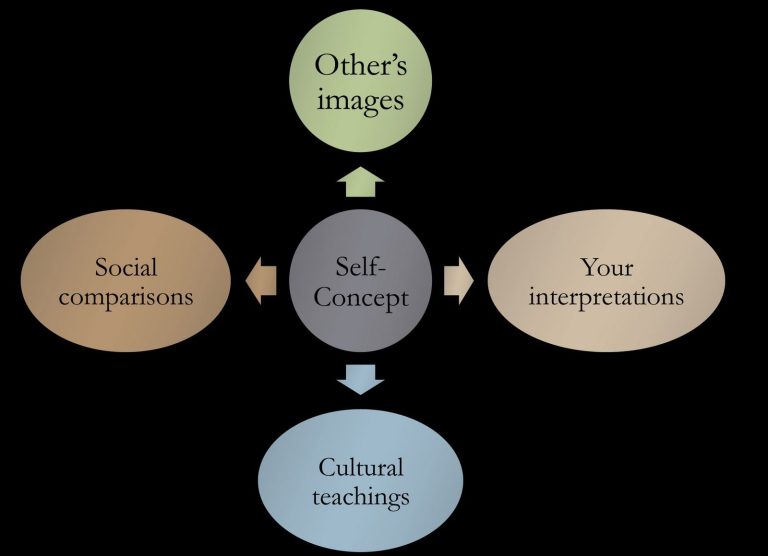What is Instrumental Language?
Instrumental language refers to the use of communication as a means to achieve specific objectives. It involves using language as a tool to achieve goals or influence others.
Introduction (120 words): Instrumental language plays a crucial role in our daily lives by enabling us to convey our intentions and desires effectively. It refers to the use of language for utilitarian purposes, emphasizing the achievement of specific objectives. Whether it be persuading someone, requesting assistance, or expressing our needs, instrumental language allows us to communicate our intentions clearly and concisely.
Unlike expressive language, which focuses on individual emotions and personal experiences, instrumental language is more goal-oriented and seeks to influence others. By crafting our words and messages precisely, we can manipulate the outcome of conversations or influence others to act in our favor. Understanding and mastering the art of instrumental language is essential for effective communication and achieving desired outcomes in various domains of life.
Understanding Instrumental Language
Definition Of Instrumental Language
Instrumental language refers to the use of words and phrases that are intended to achieve a specific goal or purpose. It is a form of communication that focuses on achieving a desired outcome, rather than simply conveying information.
Importance Of Instrumental Language
Instrumental language plays a crucial role in various aspects of our lives, exerting its influence in personal interactions, professional settings, and even marketing efforts. By utilizing instrumental language effectively, individuals and organizations can significantly enhance their ability to persuade and influence others.
The importance of instrumental language lies in its power to convey a clear message and elicit a desired response. Whether it’s a sales pitch, a negotiation, or a simple conversation, choosing the right words and employing instrumental language techniques can make all the difference.
By understanding the significance of instrumental language, individuals can develop their communication skills and improve their chances of achieving their intended outcomes. Whether it’s in business, politics, or everyday life, mastering the art of instrumental language can lead to greater success and fulfillment.

Credit: www.researchgate.net
Examples Of Instrumental Language
Instrumental language is a powerful tool that we use in our everyday lives to achieve specific goals. In various contexts, such as business and marketing, politics and propaganda, and interpersonal communication, we utilize different forms of instrumental language to influence, persuade, and achieve desired outcomes.
In Business And Marketing
In the realm of business and marketing, instrumental language plays a crucial role in attracting customers, promoting products, and driving sales. Marketers strategically use persuasive language techniques to create a persuasive message and engage with their target audience.
For instance, businesses often employ emotional appeals to tap into the customers’ desires and needs, making them more likely to purchase a product. By using words like “imagine,” “enjoy,” and “fulfillment,” companies evoke positive emotions and connect with their audience on a personal level.
Moreover, businesses frequently use social proof as instrumental language to influence consumer behavior. Phrases such as “trusted by millions” and “best-selling” make customers feel confident in their decision to purchase a product, as they can see that others have already done so.
In Politics And Propaganda
Instrumental language in politics and propaganda is employed to influence public opinion and shape collective beliefs. Political figures use persuasive techniques to sway voters, gain support, and advance their agendas.
One common strategy is the use of rhetorical devices, such as repetition and exaggeration, to reinforce key messages and make them more memorable. Phrases like “we cannot afford to wait any longer” and “a once-in-a-lifetime opportunity” aim to mobilize the audience and create a sense of urgency.
In addition, politicians often use loaded language to frame issues in a particular way. By choosing words with strong emotional connotations, they can activate specific emotions and biases in the audience. For example, describing a policy as “radical” or “dangerous” can fuel fear and opposition.
In Interpersonal Communication
Instrumental language is also commonly used in interpersonal communication to achieve personal goals and influence others. Whether it’s a negotiation, a persuasion attempt, or an attempt to gain cooperation, the words we choose have a significant impact on the outcome.
Active listening, an instrumental language technique, enhances communication by showing interest and understanding. Through phrases like “I hear what you’re saying” and “That’s a valid point,” we acknowledge the other person’s perspective and create a cooperative atmosphere.
Furthermore, the use of positive reinforcement can encourage desired behaviors in interpersonal situations. Employing phrases such as “I appreciate your effort” and “Great job!” motivates others and strengthens relationships.
In conclusion, instrumental language is an essential aspect of various domains, including business, politics, and interpersonal communication. By understanding and effectively utilizing this language, we can effectively communicate, influence others, and achieve our desired outcomes.
Effects Of Instrumental Language
Instrumental language refers to a form of communication that focuses on achieving a specific goal or outcome. It is characterized by its directness, efficiency, and lack of emotional expression. While instrumental language can be effective in certain situations, it also has several distinct effects on perception, behavior, manipulation, persuasion, relationships, and trust.
Influence On Perception And Behavior
Instrumental language has a significant influence on how individuals perceive and interpret information. When used in communication, it can shape their attitudes, beliefs, and actions. By employing logical arguments and factual evidence, instrumental language can inspire individuals to adopt certain behaviors or viewpoints.
Moreover, instrumental language activates the logical and analytical parts of the brain, leading to a more rational and objective thought process. This can result in individuals making decisions based on facts, data, and practical considerations rather than emotions.
Manipulation And Persuasion
Instrumental language can also be used as a powerful tool for manipulation and persuasion. By employing strategic language techniques, individuals can subtly influence others to act in a desired way or believe a particular idea. This ability to manipulate and persuade becomes especially evident in advertising, political speeches, and sales pitches.
Through carefully constructed messages, individuals can exploit the cognitive biases and psychological vulnerabilities of their audience. They can create a sense of urgency, highlight potential benefits, and downplay any negative aspects, ultimately guiding individuals towards a specific course of action.
Impact On Relationships And Trust
The use of instrumental language in interpersonal relationships can have both positive and negative effects. On one hand, it can foster clear communication, minimize misunderstandings, and create efficiency in task-oriented interactions. In professional settings, instrumental language is often employed to relay information, delegate tasks, and resolve conflicts.
However, the overreliance on instrumental language can create a sense of emotional distance and detachment in relationships. It may neglect the importance of emotional expression, empathy, and understanding. When individuals primarily use instrumental language, it can erode trust, diminish connection, and hinder effective communication in personal relationships.
Overall, while instrumental language can be a valuable tool in achieving specific objectives, it also carries several consequences. It influences perception and behavior, can be used for manipulation and persuasion, and has implications for relationships and trust. Understanding the effects of instrumental language allows individuals to utilize it responsibly and consider its impact on communication dynamics.

Credit: slideplayer.com
Tips For Recognizing And Responding To Instrumental Language
Learn how to identify and effectively respond to instrumental language with these valuable tips. Gain a deeper understanding of what instrumental language is and enhance your communication skills.
Tips For Recognizing And Responding To Instrumental Language
Instrumental language refers to a form of communication that aims to achieve a specific goal or outcome, often disregarding the feelings or well-being of others. It can manifest in various ways including manipulation, coercion, and persuasion. Learning to recognize and respond to instrumental language is crucial for effective communication and building healthy relationships. In this section, we will explore three key tips for identifying and addressing instrumental language: developing critical thinking skills, employing active listening techniques, and using empathy and emotional intelligence.
Developing Critical Thinking Skills
To recognize instrumental language, it is essential to possess critical thinking skills. This involves questioning and analyzing the messages we receive to assess their underlying intentions and potential consequences. Some ways to develop critical thinking skills include:
- Being mindful of the language used: Pay attention to the words, tone, and context of the conversation. Look for any attempts to manipulate or control.
- Evaluating motives: Observe whether the speaker’s intentions align with mutual benefit or if there is a sole focus on personal gain.
- Considering alternative perspectives: Challenge your own biases and assumptions by considering different viewpoints. This open-mindedness enables you to discern when instrumental language is used to sway opinions.
Active Listening Techniques
Active listening is a powerful tool for identifying instrumental language. It involves fully engaging with the speaker and understanding their message beyond the surface level. Here are some active listening techniques:
- Maintain eye contact: Show the speaker that you are present and attentive, signaling your interest in understanding their true meaning.
- Ask clarifying questions: Seek clarification when you suspect hidden agendas or unclear motives. This encourages the speaker to provide further insights and prevents misunderstandings.
- Paraphrase and summarize: Repeat the speaker’s main points in your own words to demonstrate your comprehension and get confirmation that you understood their intended message.
- Pay attention to non-verbal cues: Notice facial expressions, body language, and tone of voice. These cues can provide additional insights into the speaker’s true intentions.
Using Empathy And Emotional Intelligence
Empathy and emotional intelligence play a crucial role in recognizing and responding to instrumental language. By understanding others’ emotions and perspectives, you can build stronger connections and identify potential manipulative tactics. Here’s how you can utilize empathy and emotional intelligence:
- Put yourself in their shoes: Try to understand the speaker’s motivations and experiences that may influence their language choices. This perspective-taking helps you decipher their underlying intentions.
- Validate emotions: Acknowledge the speaker’s feelings and concerns to create a safe and open environment for communication. This fosters trust and makes it easier to address any instrumental language effectively.
- Consider the impact: Reflect on how the use of instrumental language may affect others involved. Understanding the potential harm empowers you to respond appropriately and advocate for healthier communication practices.

Credit: prezi.com
Frequently Asked Questions For What Is Instrumental Language?
What Is An Example Of Instrumental Language?
An example of instrumental language is using words or phrases to achieve a specific purpose or goal. This type of language is practical and focused on getting results.
What Is The Difference Between Regulatory And Instrumental Language?
Regulatory language refers to laws and regulations imposed by governing bodies, while instrumental language relates to the practical implementation of those regulations. Regulatory language sets the rules, while instrumental language focuses on how to comply with those rules.
What Is The Instrumental Value Of Language?
The instrumental value of language lies in its ability to facilitate communication, foster understanding, and convey information efficiently. Language enables us to express thoughts, share ideas, and connect with one another, making it an essential tool for human interaction and societal development.
What Is The Instrumentalist View Of Language?
The instrumentalist view of language sees language as a tool for achieving particular goals or purposes. It emphasizes the practical function of language in communication and problem-solving.
What Is Instrumental Language?
Instrumental language refers to the use of language as a tool or instrument to achieve a specific goal or purpose. It focuses on communicating ideas and getting things done efficiently and effectively.
Conclusion
To sum up, instrumental language refers to the use of words to achieve a specific purpose or objective. It plays a crucial role in effective communication, persuasion, and influence. By understanding and utilizing instrumental language techniques, individuals can enhance their ability to convey their intentions and achieve desired outcomes.
Remember to use clear and concise wording to make your message impactful and easily understood.




